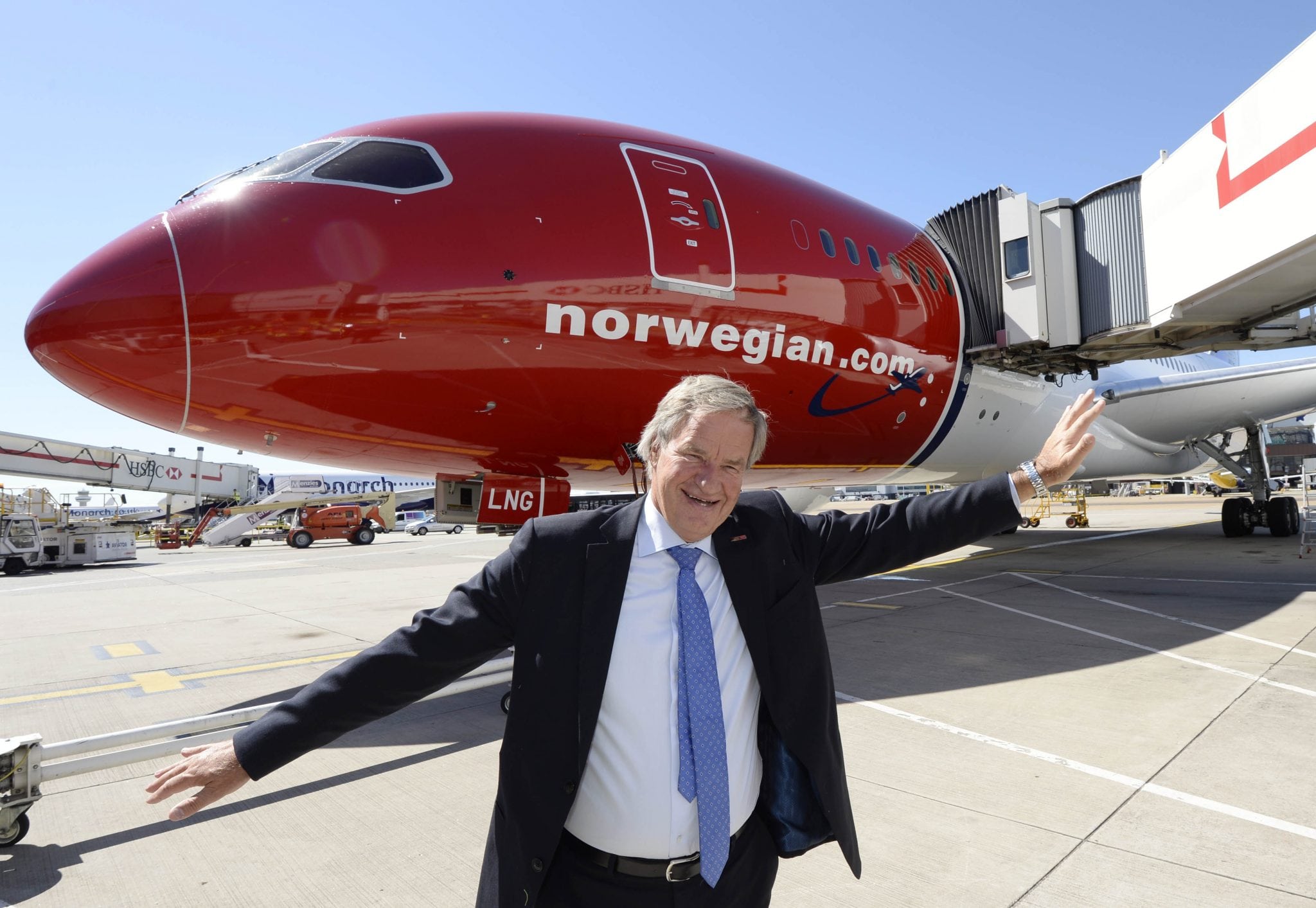Norwegian Air Is Dealt a Setback on U.S. Flights by the DOT

Skift Take
The U.S. government this week declined to approve Norwegian Air's plan that would have allowed the carrier's United Kingdom subsidiary to fly to the United States, a move that could give the carrier more flexibility with its international route network.
The issue is politically sensitive, as the three major U.S. airlines and their pilot unions oppose Norwegian's proposal. They generally argue Norwegian is a Norway-based company, and that its UK arm should not be permitted to fly to U.S. airports. They accuse the company of trying to forum shop among European countries so it can obtain the best possible economic advantage. Norwegian has countered that it is following all applicable laws in the UK and the U.S.
While Norwegian's plan is contentious in the United States, it is not necessarily unusual. British regulators approved the UK subsidiary in a timely matter, and officials with the British government had urged the U.S. Transportation Department to do the same. In most cases, U.S. regulators clear European airlines quickly.
But on June 30, the DOT declined to give Norwegian's UK subsidiary the right to temporarily fly to the United States, while it worked on a more permanent decision. The government said the issues involved were "novel and complex" and said it needed more time to decide. It did not give many details, other than to say Norwegian's application "raised a number of significant issues."
Norwegian is betting it eventually will receive clearance, but it does not know when. The U.S. government has already tentatively approved Norwegian's plans that would allow a similar Irish-based subsidiary to fly to the United States.
"Norwegian UK is a recognized British airline, with a large UK base and the support of the British Government," Anders Lindström, Norwegian's U.S.-based spokesman, said in an email. "Given Norwegian UK’s clear and legitimate right to a Foreign Carrier Permit, we therefore remain confident we will receive final approval."
Still Flying
For U.S. passengers, this means little. Norwegian operates trans-Atlantic flights now under its Norwegian Long Haul subsidiary, based in Norway. Though not in the EU, Norway participates in EU's Open Skies agreement with the United States. This means Norwegian Long Haul can fly from anywhere in Europe to anywhere in the United States, even without setting up a UK subsidiary.
But Norwegian's Norway-based operation is under some constraints. It does not have the rights to fly from the UK to many other international destinations. The company's UK subsidiary does have those rights.
"Before obtaining a UK license, Norwegian could not operate from the UK to destinations in Asia, South America and Africa," CAPA-Centre for Aviation said in a recent report. "Opening traffic rights with a wide range of nations in this way, under the UK's bilateral agreements, was Norwegian's motivation for obtaining a UK license."
If Norwegian's UK subsidiary earns the right to fly to the U.S., it would solve a major operational conundrum. In that case, a single aircraft could fly from New York to London to Bangkok. Now, that would require two planes from two subsidiaries - one operated by the Norwegian-based carrier, and the other operated by the UK-based one.
"The need to operate under two different [air operator certificates] from the same base would reduce its operational flexibility and efficiency, since it would not be able to deploy the same aircraft and crew on a transatlantic flight as, for example, on a flight to Asia or South America," CAPA said in the report.




